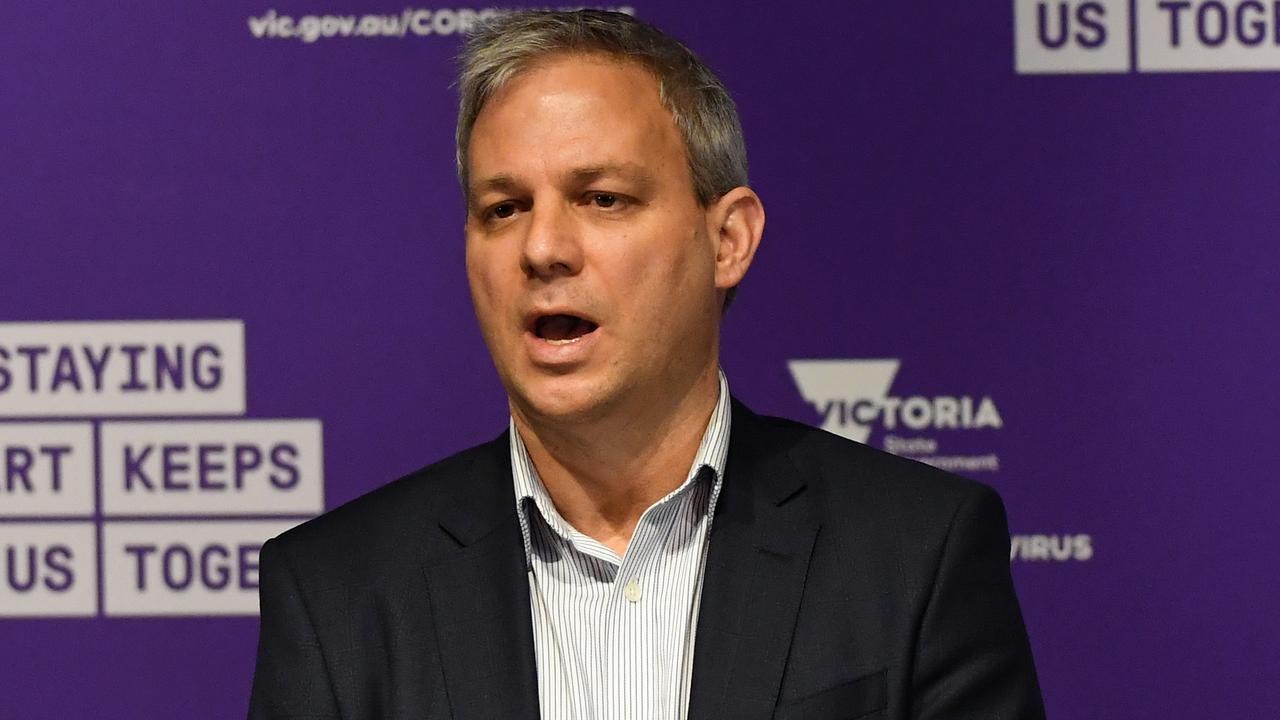Victoria records 5919 new cases amid new testing, isolation rules
Scorching temperatures have forced some testing sites to close, while calls to extend the holidays in a bid to vaccinate more children before school goes back have been rejected.
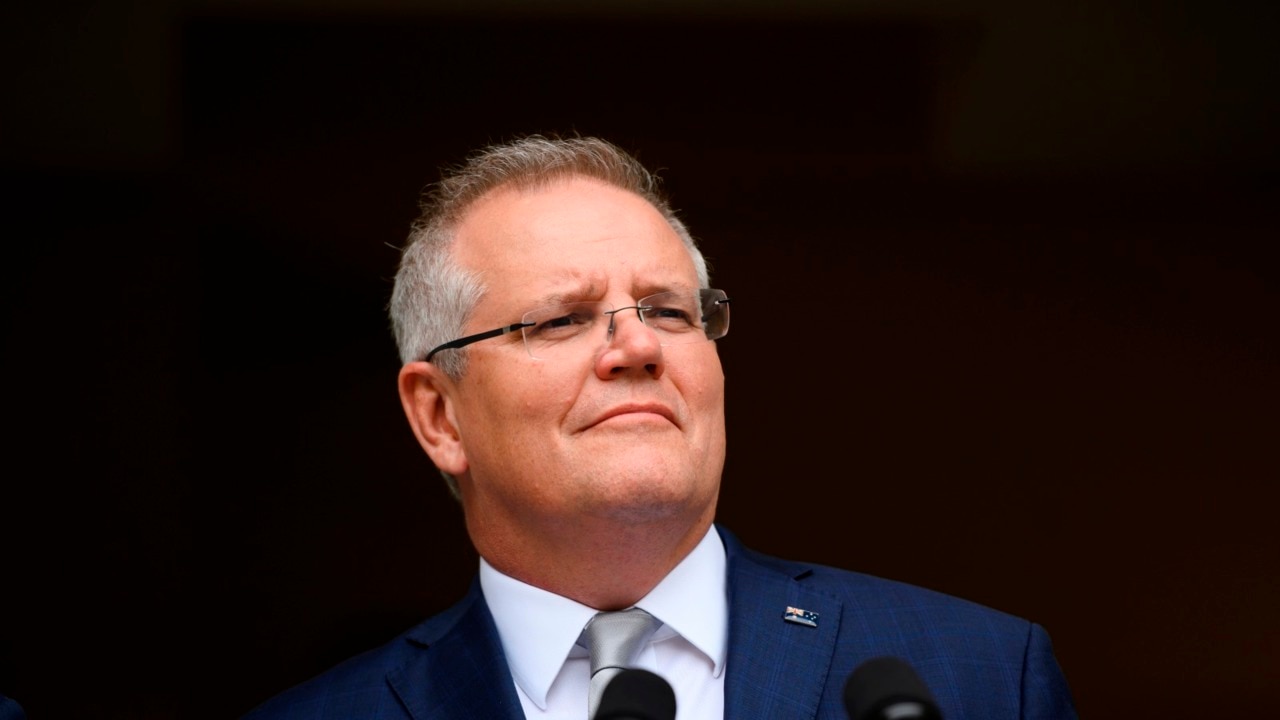
Coronavirus
Don't miss out on the headlines from Coronavirus. Followed categories will be added to My News.
• This coronavirus article is unlocked and free to read in the interest of community health and safety. Tap here to see the latest great value offer for full digital access to trusted news from the Herald Sun and Leader.
Scorching temperatures have forced some testing sites to close on Friday afternoon as a surge in Omicron infections caused Victoria’s case numbers to spike.
As Melbourne sweltered through temperatures of 34C by 12.30pm, workers were seen packing up a testing site at Albert Park due to the “extreme heat”.
The Health Department on Thursday announced sites would likely be forced to close during the heatwave, with testing centres operating from outdoor tents the most likely affected.
Temperature inside the tents can rise as much as 10 degrees higher than outside in addition to staff working in full PPE.
At least a dozen other centres have also been closed, with the Department’s website citing they were over capacity.
It comes as Victoria and NSW again smashed their daily record of Covid cases as Omicron continues to spread and Delta lingers.
In Victoria, 5919 new cases and seven deaths were announced on Friday.
It brings the total number of active cases across the state to 28,044.
There are currently 428 people in hospital with the virus, including 97 receiving intensive care, with 21 on ventilators.
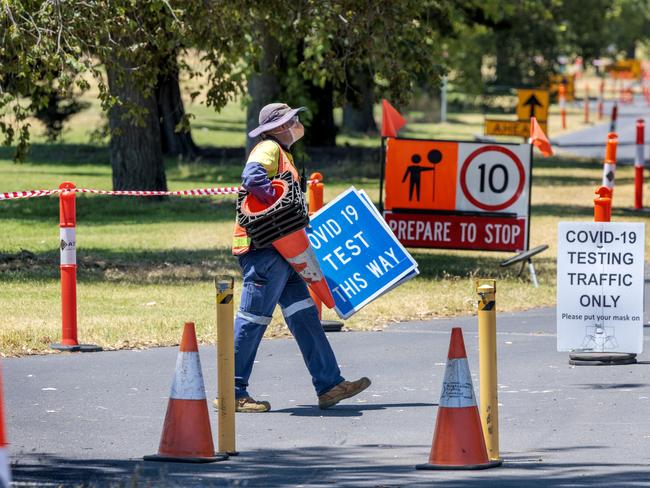
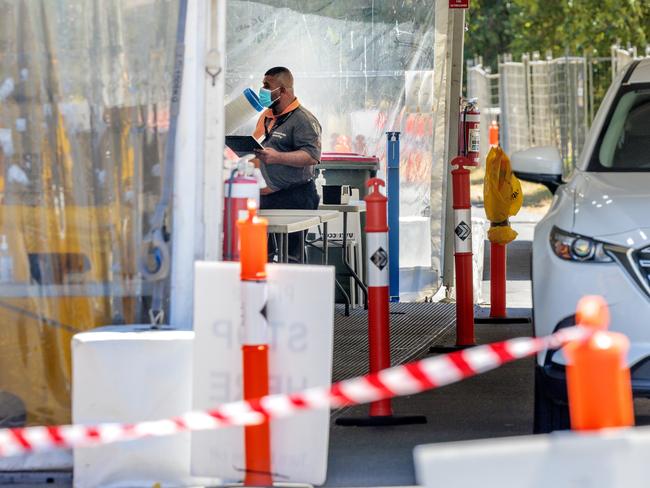
More than 66,700 Victorians were tested on Thursday.
Health Minister Martin Foley said a third of those cases had been identified as the Omicron variant.
“That number has roared up from very little last week and it is ... expected that the majority of cases will by Omicron very shortly,” he said.
Meanwhile, NSW announced a spike of 21,151 new infections, along with six deaths.
In the northern state, 763 are in hospital with Covid, along with 69 in ICU.
CHANGE TO SCHOOL START DATE RULED OUT
School holidays won’t be extended in a bid to vaccinate more children before the school year starts on January 31 despite predictions just one third of eligible kids will be jabbed in time.
Health minister Martin Foley on Friday slapped down recommendations by the Victorian president of the Australian Medical Association that the summer break be extended by one week to allow more parents to book in appointments at GPs and state-run hubs, saying the government was set to roll out paediatric Pfizer vaccines from January 10.
“We’re confident that the system that we’ve got in place starting on the 10th January for the 5-11 year old vaccine program,” Mr Foley said.
“We want to make sure that they are built into the system of the vaccine program.”
AMA Victoria president Roderick McCrae said he proposed a possible delayed start to the 2022 school year to combat what had become a “shambolic” pandemic response caused by transitioning to rapid antigen testing (RATs), revised definitions of primary close contacts and GPs’ hesitancy to open up vaccination appointments before paediatric doses arrived from Europe.
“Everything is looking more and more shambolic,” Mr McCrae said.
“I’d estimate that about one third of that age group would have received a vaccine dose by the start of the school year.”
“(The delay) would include the opening of schools, because it’s not just the children, it’s the staff of the schools, who also have an impact.”
There are about 578,000 Victorian children aged between five and 11 years old who are eligible to be vaccinated from January 10.
A Department of Health spokesman said: “We’re scaling up our vaccination program to deliver 300,000 vaccine doses each week in support of the Commonwealth’s program – opening vaccination centres, recruiting and training staff, and taking vaccines to where they’re needed most.”
“With the first paediatric vaccines rolling out on 10 January, we’re working with health services across Victoria to make vaccination a positive experience for our 5 to 11-year-olds – regardless of their age, ability or background.”
TEST RULES ‘INCREDIBLY SIGNIFICANT’
Business groups and industry leaders have backed a major overhaul of Covid testing and isolation rules designed to keep the nation moving.
State and territory leaders, along with Prime Minister Scott Morrison, on Thursday agreed to narrow the definition of a close contact to those who live with or have spent more than four hours in a home or accommodation setting with a confirmed case.
The major change – which came into effect across Victoria, New South Wales, the ACT, South Australia and Queensland at midnight – is expected to free tens of thousands of Australians from isolation and ease pressure on besieged testing networks.
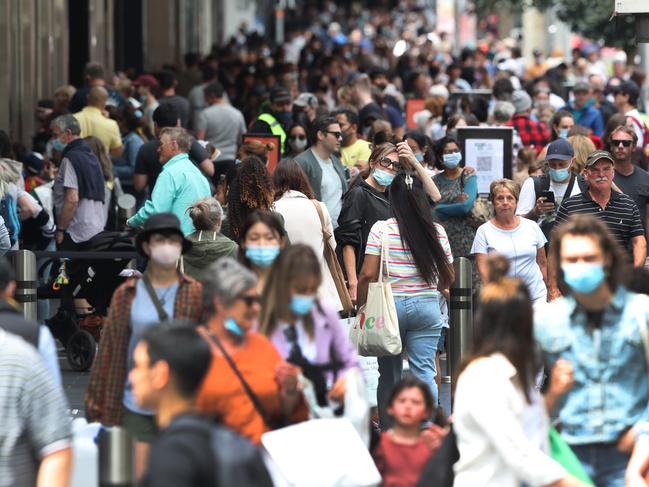
In another significant shift, the standard PCR tests will be reserved for contacts that display Covid symptoms, or those who return a positive rapid antigen test (RAT).
All close contacts must get a rapid test and isolate for one week, regardless of the result. A negative RAT is required on the sixth day to leave isolation.
The changes also mean that people pinged at exposure sites – such as shopping centres or cafes – will not be required to isolate.
In a win for families, those potentially exposed at childcare centres and schools won’t be thrown into quarantine.
The Herald Sun understands the Victorian government – which has oversight of the state’s testing regime – will implement the changes in full but was on Thursday night finalising its new policy and contact-tracing settings.
The changes will ease the current pressures on the state’s under-pressure PCR testing network, with Mr Morrison urging only people who’ve returned a positive RAT and their symptomatic contacts to join the queues at testing sites.
“If you don’t fulfil this definition of a close contact, then there is no need for you to be in that line,” he said.
“You should go home. Go to the beach, go and do what you want to do. Read a book in the park. Follow all the normal, commonsense things that you would do, monitor your symptoms, follow the Covid-safe practises, make sure you have booked for your booster, do all of those sorts of things – but there is no need for you to be in that line.”
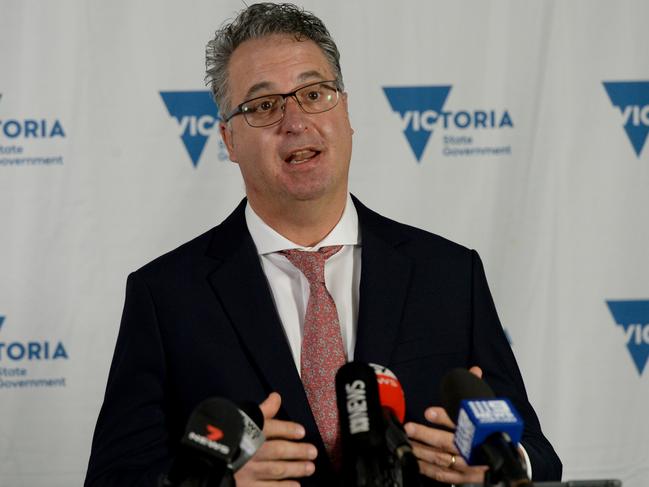
Mr Morrison said the revised definitions formed part of a major “gear change” in the way that Australia responded to the pandemic.
“I know this is a bit different to what you have been hearing over the last couple of years. That is the gear change. That is the reset,” he said. “Dealing with Delta is very different to dealing with Omicron.”
While Victorian announced on Tuesday that it had ordered 34 million rapid tests and the federal government was growing the national stockpile, many chemists and supermarkets had sold out.
Opposition Leader Anthony Albanese said: “Australians want to be tested to keep their loved ones safe, but with lines going for hours and unaffordable rapid antigen tests they can’t. This is a failure of leadership from Scott Morrison and this government”.
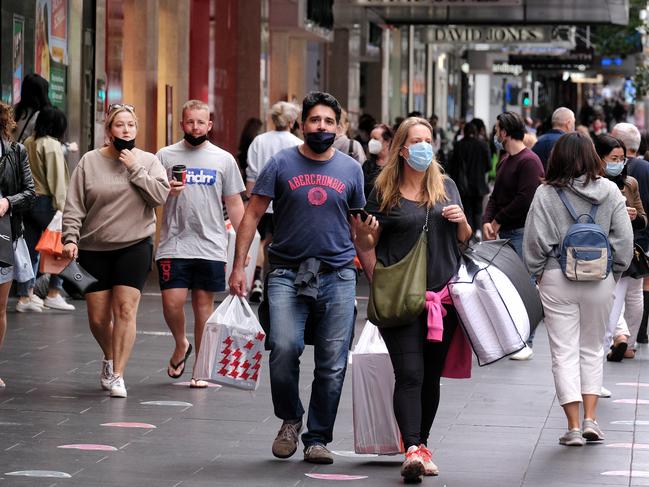
Coronavirus cases are surging across Australia with the nation on Thursday recording more than 20,000 new cases in a single day for the first time.
But chief medical officer Paul Kelly said it was “becoming very clear now” that Omicron was a less severe variant.
The significant shift in policy has been welcomed by leading business groups, who said the nationally consistent approach signalled a more stable and certain 2022.
Business Council executive director Jess Wilson said the changes would help limit economic damage and uncertainty caused by Omicron.
Victorian Chamber of Commerce and Industry chief executive Paul Guerra said the fresh approach would have an “incredibly significant” impact on the state, adding: “We look forward to businesses being able to go from strength to strength the minute we tick over into 2022.”
Small Business Australia chief Bill Lang said: “Let’s hope everyone sticks with the plan because this is a positive step forward and will provide more confidence for small businesses, in the sense that their staff won’t be forced to unnecessarily isolate”.




